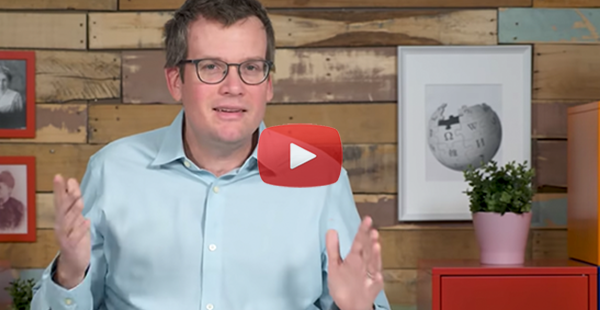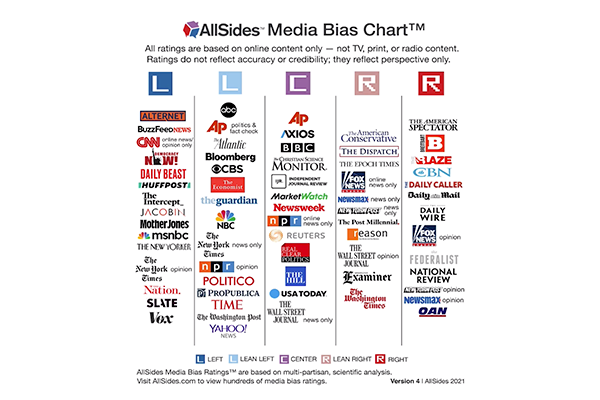Bringing TOPkit Digest to You
|
|
|
The content in this month’s TOPkit Digest is brought to you by Katy Miller, MLIS, Department Head, Student Learning and Engagement, UCF Libraries, University of Central Florida (katy.miller@ucf.edu) who discusses the topic of instructional designers and faculty partnering with libraries.
|
|
Contents of this Digest:
- Video Tip: Navigating Digital Information
- Top Tips: How Your Library Can Help Your Faculty
- Must-Read Announcements: Hackathon, TOPkit Workshop, Innovation Summit
- From the Community: Building Student Critical Thinking and Research Skills
- Friends of the TOPkit Community: DT&L Professional Development Opportunities
- Top Community Topics
|
|
Introduction to Navigating Digital Information
Evaluating Internet Resources is Harder Than We Think |
|
|
|
This is first in a series developed by Author John Green in collaboration with Mediawise and the Stanford History Education Group. The internet is a wealth of information but can be false or misleading. The series outlines the difficulty and impact of internet sources and strategies for navigating digital information. |
|
MUST-READ ANNOUNCEMENTS
- Our friends at the University of Wisconsin-Madison invite members of the TOPkit community to join them for Distance Teaching & Learning professional development opportunities.
- Plan to participate in our TOPkit Fall Hackathon 2021 with a kickoff on November 1st and sendoff on November 8th. Faculty development professionals will come together to individually or in groups improve upon or build a new artifact useful for their faculty development work. Colleagues plan, build, and briefly showcase their resulting efforts. More information to come.
- Take part in the live, virtual Florida Innovation Summit 2022, February 23-24.
- Join us for the live, virtual TOPkit Workshop 2022, March 1-3.
|
|
How Your Library Can Help Your Faculty
Student Critical Thinking and Research Skills |
|
|
|
Today’s students operate in a world where the evaluation of information requires more than finding a trusted source. They are immersed in a digital landscape in which content providers push to get information out as quickly as possible. Unfortunately, this leads to misinformation, even from sources that were traditionally viewed as trustworthy. Some of those resources innocently repeat incorrect information, others are part of an active campaign to promote disinformation. The impact of this new information landscape is that students have a harder time discerning fact from fiction. Your faculty may find it challenging to specifically address the skills needed in this new environment as part of course curriculum. You may be wondering how faculty will be able to effectively teach students the core content of a course and provide instruction on how to efficiently evaluate information. Look to your library. Librarians can partner with your faculty to integrate targeted activities into their courses that build critical thinking and research skills. The Student Learning and Engagement Department at UCF Libraries offers faculty multiple ways to deliver content to students. Faculty select options they can realistically include in their course:
|
|
|
|
|
|
|
|
|
#1 - Customized Instruction Sessions where a librarian visits the class. These can be targeted to a specific research assignment.
|
|
#2 - Information Literacy Modules with graded activities that can be integrated into a Learning Management System (LMS) course to help students build and improve the fundamental research skills needed to succeed.
|
|
#3 - Interactive Learning Objects which use widgets to create interactive activities to illustrate concepts, such as UCF's open sourced Materia. | |
#4 - Personalized Course Support ranging from developing supplemental resources to adding a librarian to actively participate in your faculty's course.
|
|
#5 - Research Consultations with students who encounter stumbling blocks in their research and with faculty to provide assistance in developing effective research assignments.
|
|
#6 - Skill Building Videos that focus on building a specific research skill. An example is Evaluating Web Sources Quickly with Lateral Reading.
|
|
#7 - Specialize LMS Course or Course Modules to integrate seamlessly in with a course to highlight key concepts.
|
|
|
Consider these options when offering your faculty ways to enhance their courses with critical thinking and research skills.
|
|
Building Student Critical Thinking and Research Skills
|
|
|
|
Librarians make excellent partners for faculty who want to incorporate critical thinking skills into their curriculum. Library instruction is more than just an introduction to using academic database. It can also foster answers to questions such as: - Is the information accurate?
- Is there bias?
- Is the source appropriate for the research being conducted?
- How does this particular source fit within the scope of the research?
|
|
|
An example of an easily adopted resource for your faculty to integrate into their courses are Skill Building Videos created to focus on building specific research skills. This collection of short videos is a simple but effective way to highlight concepts to make the research process easier for students. Some topics include:
- Citation Management
- Evaluating Resources
- Preventing Plagiarism
- Research Process
- Search Strategies
- Success Strategies
|
|
|
For example, in the Evaluating News Sources Skill Building Video four steps are provided to help students quickly evaluate news items, and give them the skills they need to make informed decisions. Along the way they will be introduced to resources that are broadly applicable to their daily life. Step two mentions reading laterally and shows a Media Bias Chart from AllSides that reflects an analysis of news sources based on online content reporting perspectives only.
|
|
|
These videos can easily be incorporated into your faculty’s course content. Encourage faculty to reach out to your library and discover what options are available to infuse critical thinking and research skills into their curriculum.
|
|
Friends of the TOPkit Community
|
|
Make a Lifelong Impact on Students
Engaging Course Design and Inclusive Interactions |
|
|
|
Explore strategies for online instruction that bring home better learning outcomes for students. Help your faculty make a lifelong impact on those enrolled in their courses through instructional design with thoughtful preparation, engaging course design, and inclusive interactions. The University of Wisconsin-Madison's Distance Teaching & Learning offers a diverse slate of professional development courses to help you level up your online or hybrid instructional design game this fall: - Fundamentals of Online Teaching
- Preparing to Teach Online
- Online Education Administration
- Professional Certificate in Online Learning
- Digital Design for Teaching and Learning
Our best‐in‐class instructors specialize exclusively in distance education. We model what we teach, so expect plenty of personalized interaction in your course to help meet your unique learning needs. Join us if you are looking to strengthen your own instructional design skills. Let your faculty know about these professional development opportunities too.
|
|
Developer and Editor
Bren Bedford, MNM, Web Project Analyst, Center for Distributed Learning, University of Central Florida
Editor
Samantha Richardson, B.A. English, Communications Specialist, Pegasus Innovation Lab, Center for Distributed Learning, University of Central Florida
|
|
|



